Samsung Pay is a widely used NFC payment app that allows users to make fast and secure contactless payment transactions. To maintain high security standards, the Samsung Pay app undergoes rigorous security testing, including penetration testing and mobile application security testing.
These processes are essential for detecting vulnerabilities in real-time and preventing data breaches during Samsung Pay online and Samsung Pay card transactions. In compliance with GDPR requirements and GDPR regulations, Samsung ensures that all GDPR data is protected through encryption and strict security testing tools.
By combining advanced fintech software and automated penetration testing, Samsung delivers a trusted and reliable experience. Regular software testing services help maintain user trust and ensure the security of Samsung Pay bill payments.
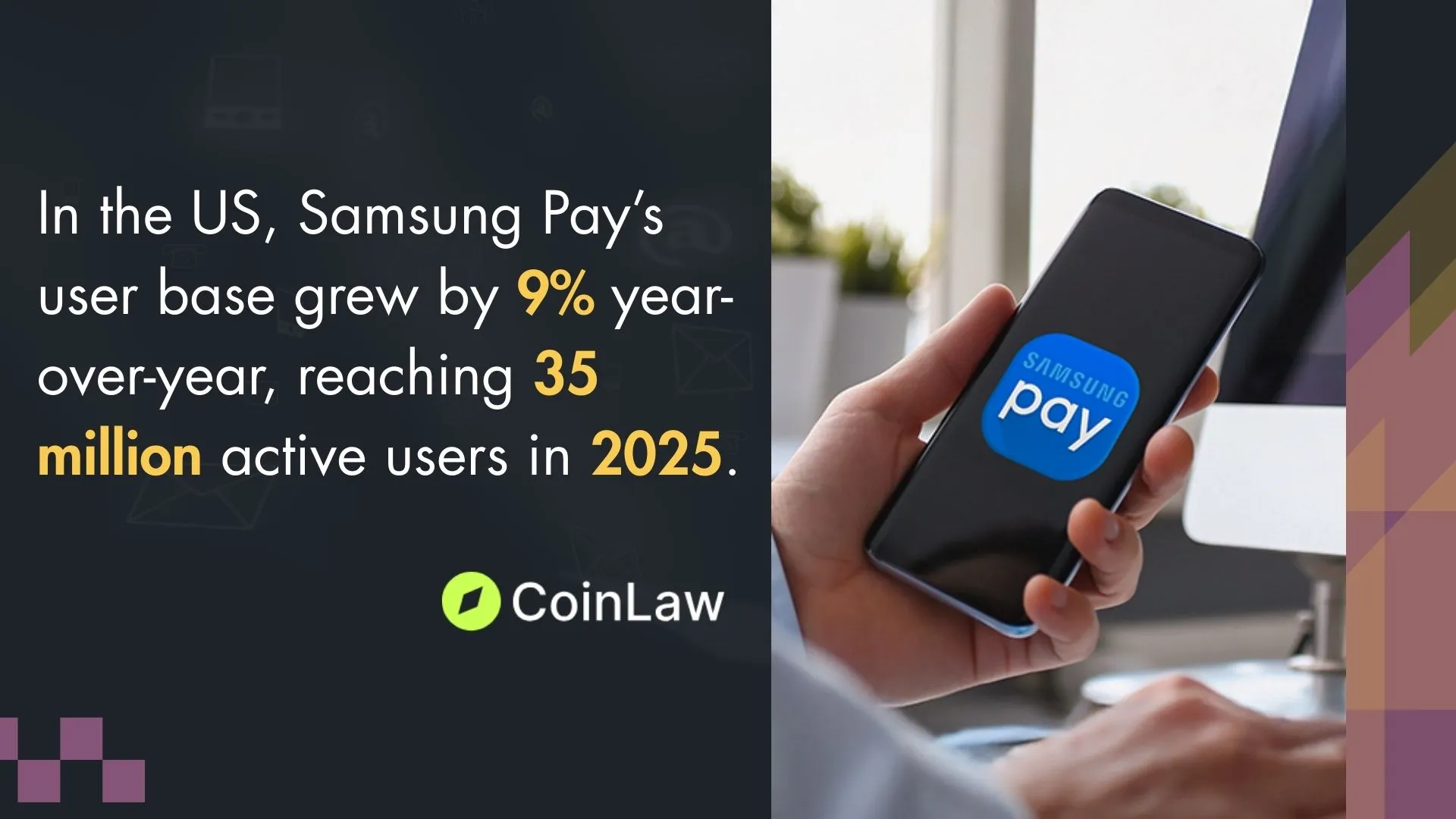
✨ Samsung Pay Testing & Security Overview
📌Purpose: Understand how Samsung Pay ensures secure mobile transactions through robust testing strategies.
📌 Key Insight: Learn how Samsung uses penetration testing, security tools, and GDPR compliance in its mobile payment ecosystem.
📌 Testing Focus: Explore mobile app security testing, biometric authentication validation, and transaction flow testing.
📌 Technology Stack: Covers NFC, tokenization, cryptographic methods, and Samsung's secure platform integration.
📌 Takeaway: Get clarity on how Samsung Pay maintains safe, reliable, and compliant digital payments globally.
Introduction to Samsung Pay
Samsung Pay is a digital payment platform built exclusively for Samsung devices, offering users a secure and contactless way to manage everyday transactions. By supporting both Near Field Communication and Magnetic Secure Transmission, it ensures compatibility with a wide range of POS terminals and point of sale systems.
The Samsung Pay app allows payments using a Samsung Pay card, covers Samsung Pay bill services, and includes access to the Samsung Pay Gift Card Store. Its foundation is strengthened by a multi-layered security platform, combining hardware-based security features with biometric authentication such as fingerprint recognition.
Each payment is encrypted with a cryptography engine and confirmed using a unique digital identifier. The platform aligns with PCI DSS requirements, ISO 4217 currency standards, and Know Your Customer protocols. Designed for evolving digital payment technologies, Samsung Pay helps reduce cybersecurity threats and supports fintech growth through reliable mobile payment experiences.
Key Features of Samsung Pay
Samsung Pay stands out among NFC payment apps by combining advanced security with effortless convenience. As a reliable Samsung Pay means of payment, it integrates smart technology and user-focused design to enhance the mobile payment experience. Built for today’s evolving fintech software demands, Samsung Pay supports secure, fast, and versatile transactions.
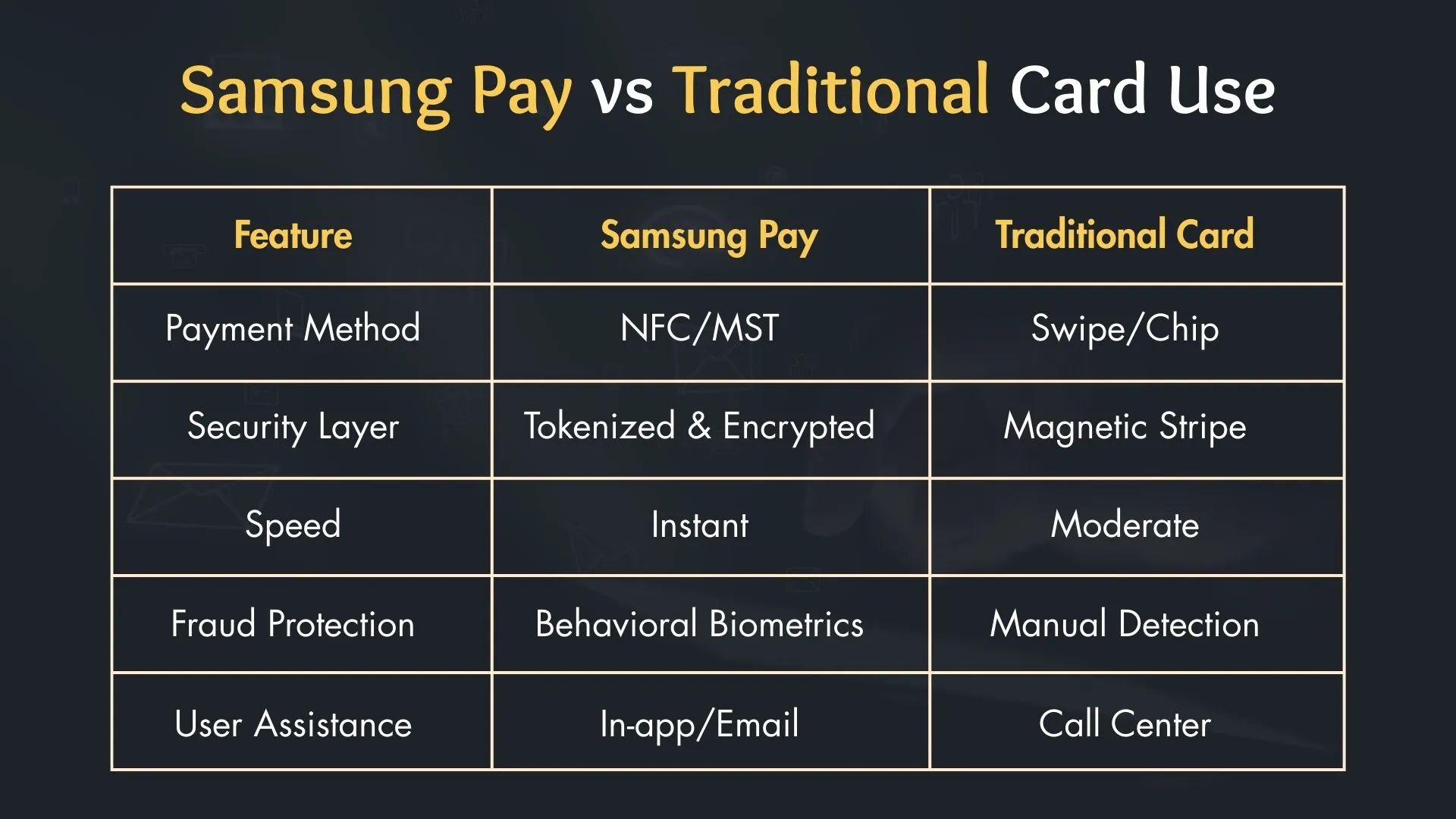
Key Features of Samsung Pay:
- Dual interface security that enables both NFC and MST payments at various POS terminals.
- Security code verification and encrypted payment confirmation through a trusted cryptography engine.
- GDPR compliance ensures all user data is protected under established GDPR guidelines.
- Integration with Mastercard Gateway for reliable transaction processing.
- Fraud scoring and behavioral biometrics enhance transaction-level risk detection.
- Support from Samsung Pay email support and Samsung Pay representatives to resolve user queries.
- Data analytics capabilities to enhance performance and security in real-time.
How Samsung Pay Works in Real-Time Transactions
Samsung Pay enables fast and protected real-time mobile transactions by blending hardware-based security with modern fintech capabilities. Built into Samsung devices, the platform uses both NFC payment and Magnetic Secure Transmission for broad point of sale system compatibility.
Steps in a Real-Time Samsung Pay Transaction:
- Launch & Selection: Users open the Samsung Pay app and choose their saved Samsung Pay card.
- Authentication: The app verifies identity using biometric authentication, such as fingerprint recognition.
- Transaction Initiation: A digital identifier and security code are generated to protect user data.
- Processing: The request is passed through a secure gateway, such as Mastercard Gateway, with fraud scoring applied in real-time.
- Bank Authorization: The Customer’s Bank reviews the payment, leveraging data analytics to detect risk and confirm the transaction.
Samsung Pay ensures every step meets modern security testing software and GDPR compliance standards.
Why Security Is Crucial for Mobile Payment Apps
As mobile payment apps like Samsung Pay become widely adopted, ensuring their security is essential to protect users and financial institutions. With increasing cybersecurity threats targeting sensitive data, companies must rely on robust security testing software and penetration testing software to detect vulnerabilities before attackers do.
Samsung implements strong security testing services, including automated penetration testing, mobile application security testing, and user testing software, to safeguard its Samsung Pay app and digital transactions. By complying with GDPR guidelines, GDPR requirements, and PCI DSS standards, Samsung protects personal and transactional GDPR data from unauthorized access.
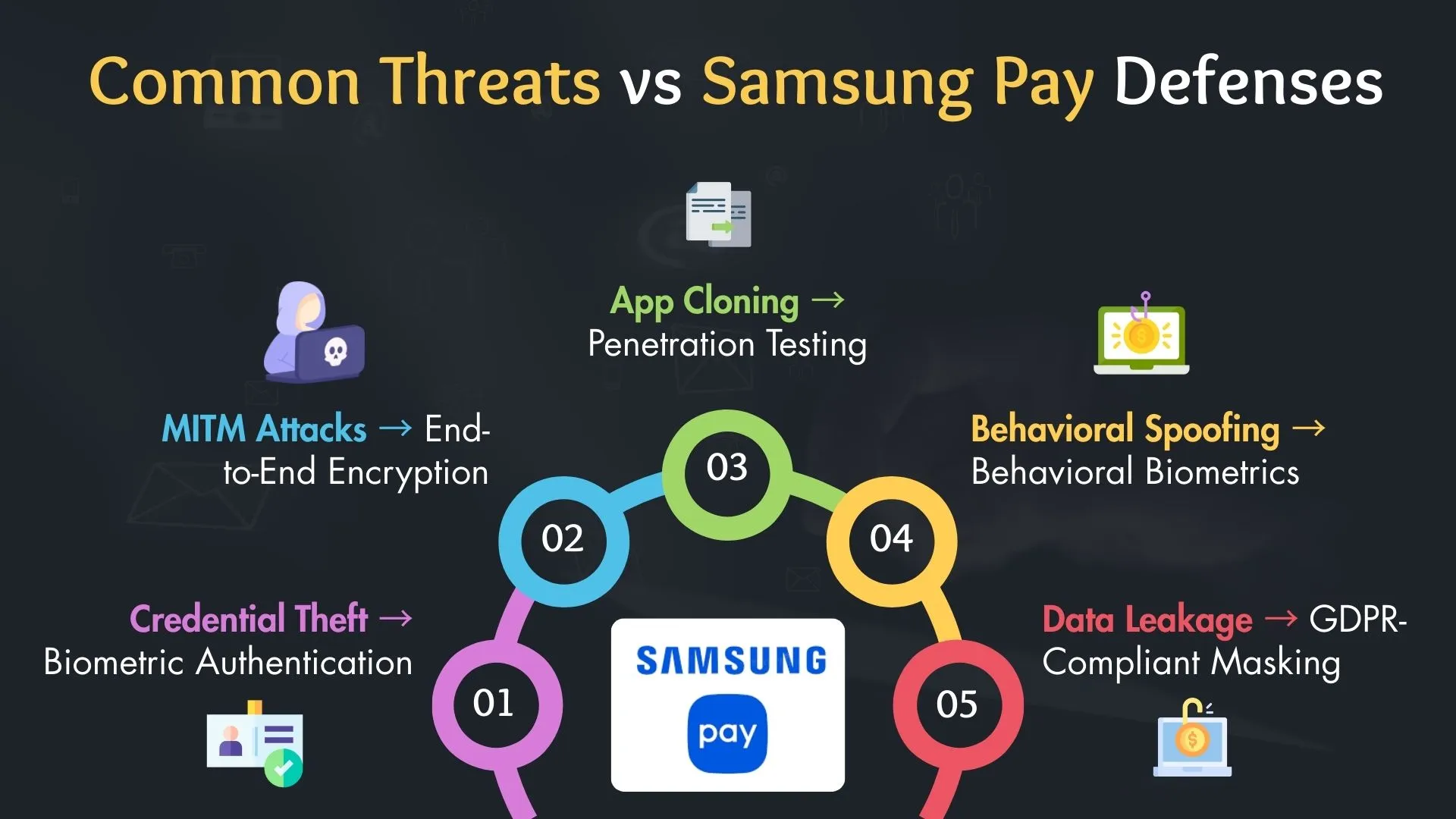
Technologies such as biometric authentication, cryptography engines, and dual interface security add further defense at every payment stage. Additionally, features like fraud scoring, behavioral biometrics, and data analytics help monitor unusual activities and support quick response. Without these layered protections, trust in mobile pay platforms could quickly diminish.
Samsung’s Approach to Secure Mobile Payments
Samsung adopts a layered security strategy to protect users across its Samsung Pay app. Designed to support evolving fintech companies and high-risk digital ecosystems, Samsung ensures every Samsung Pay online and Samsung Pay bill transaction is secure, fast, and compliant with international standards. Below are key approaches the company follows:
Key Security Approaches:
- Biometric Authentication: Uses fingerprint recognition and other biometric authentication methods to validate users securely.
- Cryptography Engine: Encrypts payment details using a hardware-based cryptography engine to prevent unauthorized access.
- Security Testing: To find vulnerabilities, security testing software, tools, and penetration testing are used.
- Dual Interface Security: Supports both NFC payment and banking smart card features for secure transactions across global POS terminals.
- Compliance Standards: Follows GDPR compliance, PCI DSS, and ISO 4217 regulations to safeguard user GDPR data.
- Advanced Monitoring: Real-time threat detection and response is achieved by data analytics, behavioral biometrics, and fraud scoring.
- Global Gateway Support: Integrates with Mastercard Gateway and Customer Bank for seamless local and international transaction flows.
Types of Mobile Payments Testing
Testing is a crucial part of ensuring secure and seamless mobile transactions on platforms like the Samsung Pay app. With rising threats to digital platforms and stricter GDPR regulations, effective software testing services and security testing software are essential. Samsung applies multiple testing approaches to maintain the safety and reliability of mobile pay experiences across global POS terminals and networks.
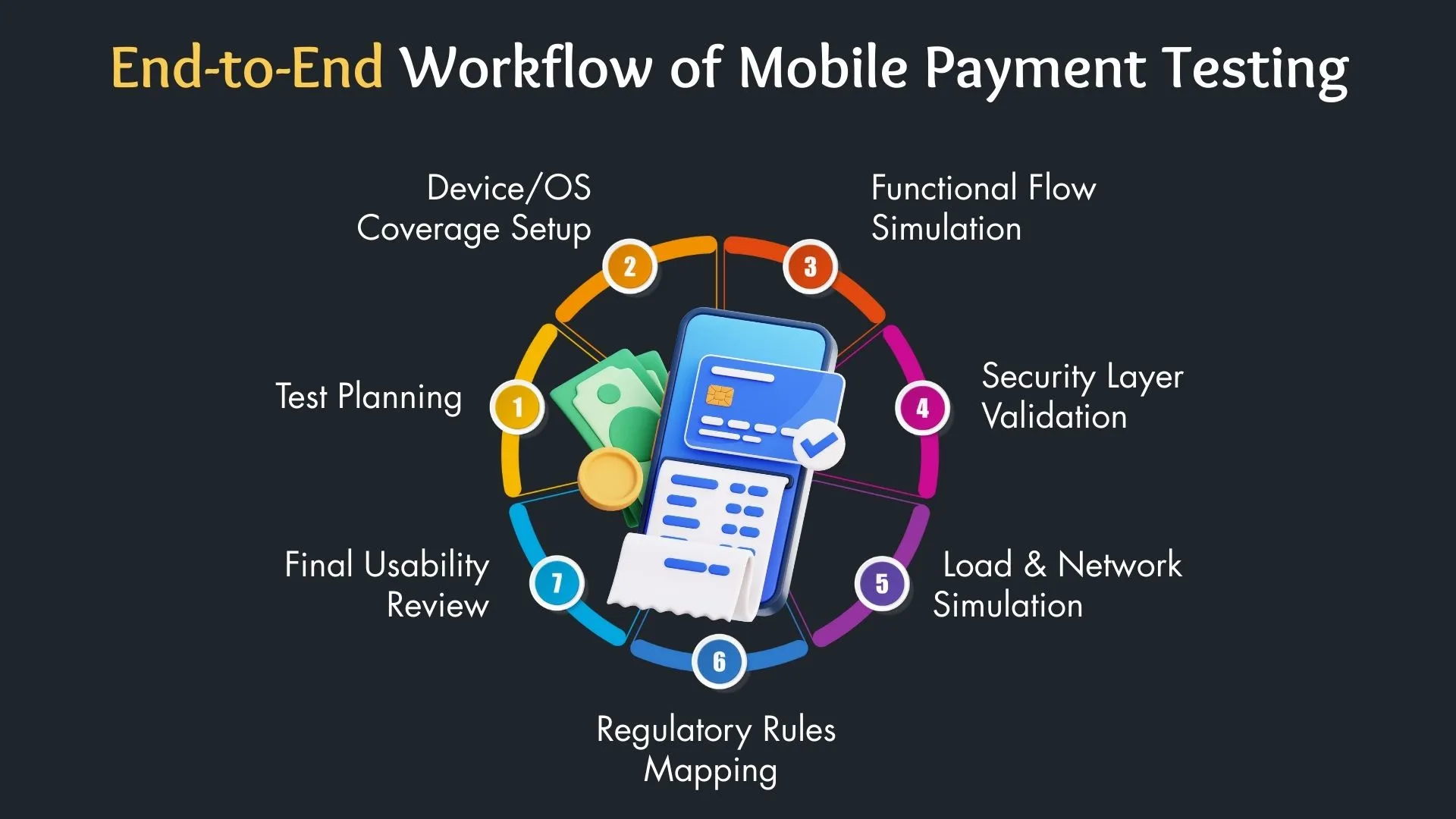
Types of Mobile Payments Testing:
- Functional Testing: Verifies Samsung Pay online, bill payments, and payment confirmation workflows.
- Security Testing: Uses automated penetration testing, cybersecurity penetration testing, and mobile application security testing to identify vulnerabilities.
- Load Testing: Checks system performance using load testing software under high transaction volume.
- Compliance Testing: Ensures all processes meet GDPR compliance, PCI DSS, and Know Your Customer standards.
- Usability Testing: Evaluates user experience with user testing software across different Samsung devices and network conditions.
Ensuring GDPR & Regulatory Compliance in Samsung Pay
Samsung Pay ensures that its platform meets strict global data protection and regulatory standards by embedding compliance into its core payment framework. As digital payments expand, aligning with GDPR requirements, GDPR guidelines, and PCI DSS has become critical to protecting users GDPR data.
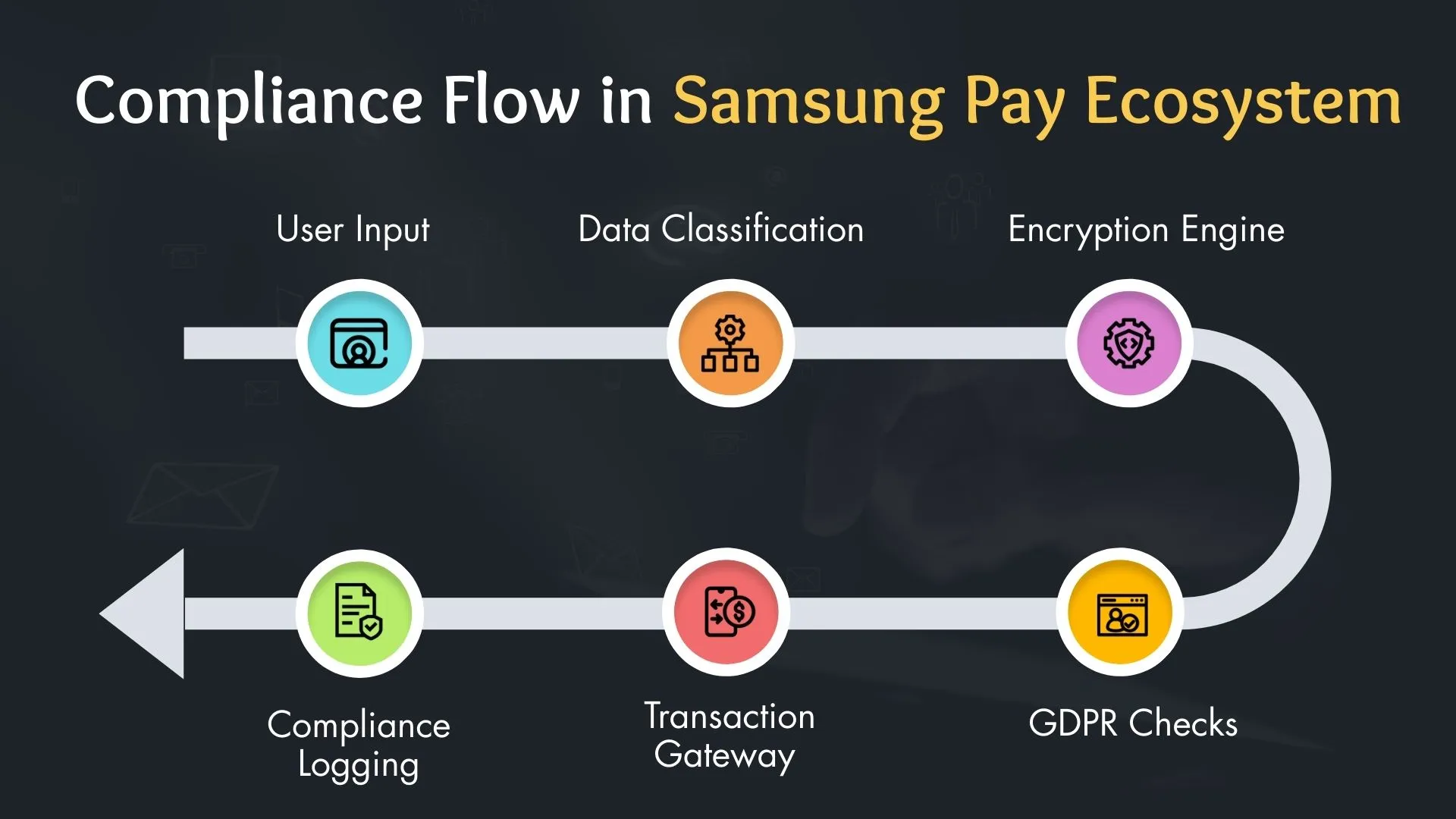
To address these needs, Samsung uses security testing services and penetration testing software to evaluate data flow, including transaction messages and personal identifiers. The Samsung Pay app also integrates secure encryption methods with features like QR/OTP Code validation and security password protections. This ensures every Samsung Pay bill and Samsung Pay online transaction is secure from unauthorized access.
Additionally, Samsung partners with global networks like Visa Fintech and Visa Developer to meet evolving application demands while maintaining regulatory oversight. By aligning with international standards, Samsung Pay guarantees that both its technology and processes stay compliant and secure across regions and banking systems.
Conclusion: How Samsung Ensures a Safe Mobile Payment Experience
Samsung Pay continues to lead the mobile payment industry by integrating strong security practices and maintaining GDPR compliance. Through consistent use of penetration testing software, GDPR data protection, and advanced security testing tools, it ensures that user information is safeguarded across all Samsung Pay online and Samsung Pay card transactions. The platform also adheres to key GDPR requirements, meeting data privacy expectations globally.
With added layers such as QR OTP Code, security password, and biometric authentication, Samsung Pay strengthens its security framework. Collaboration with Visa Fintech and Visa Developer, along with enhanced payment solutions, allows the platform to meet evolving application demands.
By securing POS terminals and enabling secure mobile pay features, Samsung reinforces its reputation as a trusted leader in fintech software and secure digital payment technologies.
Frugal Testing delivers AI-driven test automation services, functional testing solutions, and cloud-based test automation as a top software testing company.
People Also Ask
1. Is Samsung Wallet safe like Apple Pay?
Yes, Samsung Wallet is secure like Apple Pay, using biometric authentication, tokenization, and hardware-based security features to protect user data and transactions.
2. Is Samsung Pay obsolete or discontinued?
No, Samsung Pay is not obsolete. It continues to evolve with NFC technology and enhanced mobile payment security features across supported Samsung devices.
3. How is biometric authentication tested in Samsung Pay?
Biometric authentication is tested using penetration testing and mobile application security testing to validate fingerprint recognition and face ID accuracy under various scenarios.
4. What test cases are used for validating Samsung Pay’s transaction flow?
Test cases cover transaction messages, payment confirmation, QR/OTP Code verification, POS terminal compatibility, and secure data handling during real-time payments.
5. How is tokenization tested in Samsung Pay to prevent data leaks?
Tokenization testing includes validating secure cryptographic generation, token lifecycle management, and ensuring that the digital identifier cannot be reverse-engineered.




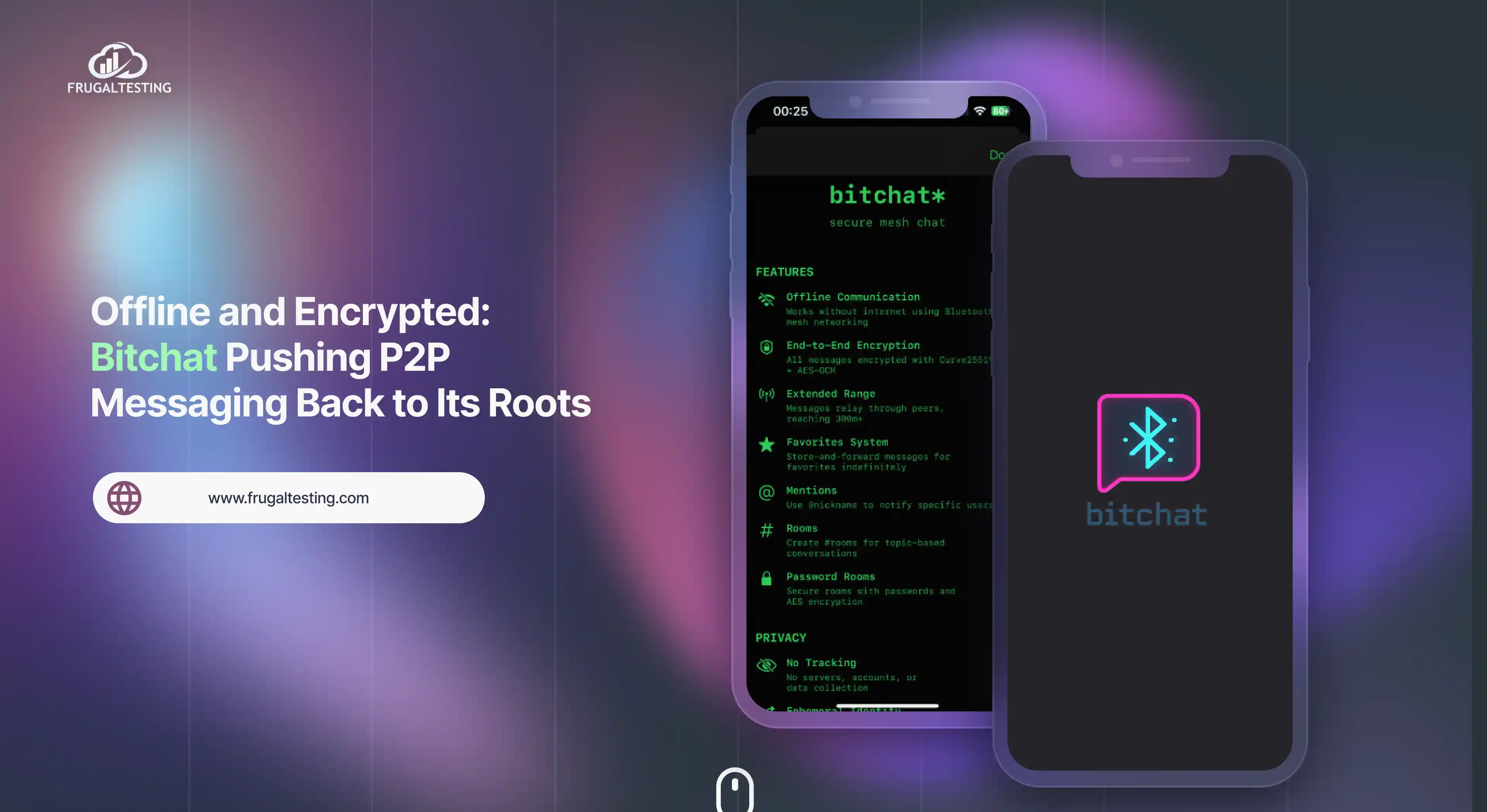
%201.webp)

